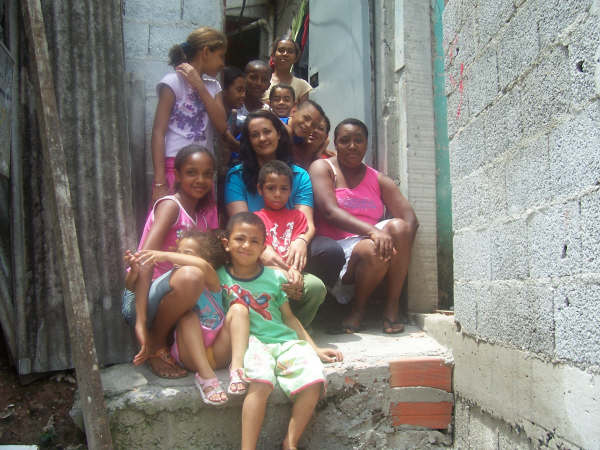
Master of Arts in Transformational Urban Leadership (MATUL) Program
The aim of the MA in Transformational Urban Leadership is to increase the capacity of emergent leaders among the urban poor, with wisdom, knowledge, character and skill across the full range of leadership dynamics of urban poor movements.
TUL500: Writings, Reign and Urban Realities
A Biblical Theology of Mission (3 units)
The Kingdom of God is the highest good.
The idea of God is the highest and most comprehensive conception in philosophy;
the idea of the Kingdom of God is the highest and broadest idea in sociology and ethics.
(Rauschenbusch)
Instructions for Facilitators, course philosophy
I. Course Description
This course is designed to give an overview of the scriptures with particular emphasis on applying the biblical motif of the kingdom of God to issues of leadership development in resource-poor urban communities.
II. Relationship to Program Outcomes
This is the program’s “lead” course, setting the stage for thinking Christianly about interventions within slum communities. It features extensive reading, community involvement, writing, and presentation – all oriented toward the acquisition of a theological “frame” for subsequent study.
III. Course Rationale
Theology: Foundational to applying the scriptures to the issues of the urban poor is an understanding of the panorama of the scriptures, its main books and themes. However most Bible Surveys are written from Western perspectives that deal with only the spiritual but ignore the breadth of the relationship of the Kingdom of God to the social, economic and political aspects of life. This course is designed to touch on most of the books of the Bible, their themes and from them relate to themes the urban poor deal with.
Development Theories and Issues: Parallel to this panorama are theological themes (readings of the scriptures from the perspective of the poor, urbanization, migration, oppression, community development, land) are applied to current development philosophies.
Praxis: This whole degree is built around a concept of Transformational Conversations – conversations that link the “God conversation” and the “city conversation”. This course could anchor these at upper level urban and development theories and city leadership conversations, but instead seeks to engage the students mostly with common people in the neighborhood. Each week students will engage the local community seeking an understanding from their stories, of their cultural perspective on the week’s theme. They will seek to communicate the stories of the scripture around that theme as part of a process of dialogical communication into a pre- or post-Christian context.
Evangelism begins in relationship around shared stories, the stories of the culture intertwined with the stories of scripture. This is an important part of preparation for those going to join learning networks in nations where evangelism is a normal part of the lifestyle of Christians. 
III. Student Learning Outcomes
Outcomes of graduate courses are a complex interplay of the candidate’s ability, motivation and calling , with the configuration of the information and cultural experiences of the material. At an MA level these outcomes cease to be largely determined by the instructor and move more significantly to the candidates independent study of the resources supplied. The critical paradigm shifts to “master” the field of the degree are likely to be serendipitous, times of “revelation” that catch us by surprise. But a professor does set some directions along which such experiences are likely to occur, some of which need measurement in order both to keep the student motivated and satisfy structural educational objectives. While there are likely many outcomes, it is helpful to narrow down those that are utilized for measurement to a few. Thus, by the end of this course candidates for this degree will be expected to be able to:
Cognitive (“Head”)
- Present a integrated but panoramic view of the Scriptures relating significant passages to themes among the urban poor that may include: poverty, oppression, social organization, urbanization, modernization, ethnicity, justice, development, transformation, worldview, globalization, debt, etc.
Affective (“Heart”)
- Have experienced deep level paradigm shifts about God-related engagement with these moral and ethical issues such that students may, if they choose, invoke a lifetime of being God’s agents of change in a fallen world and ambassadors for His kingdom.
Skills (“Hands”)
- Are skilful in analyzing a community’s culture through a storytelling process.
- Have demonstrated skills of engaging people in the pre- or post- Christian urban community in storytelling processes with a variety of themes from the Scriptures.